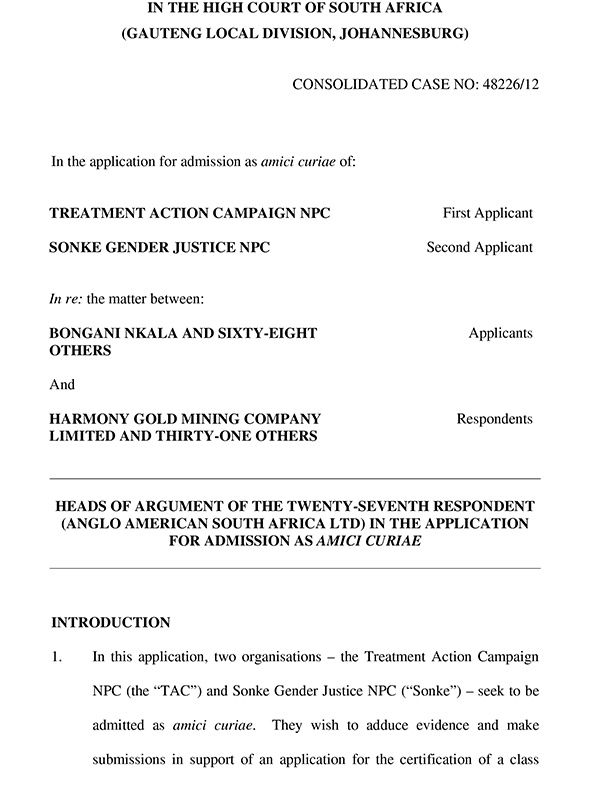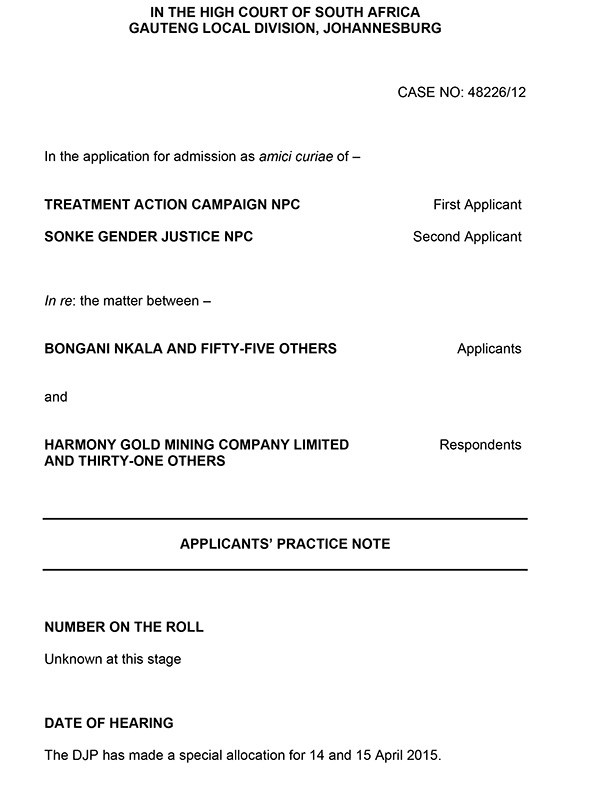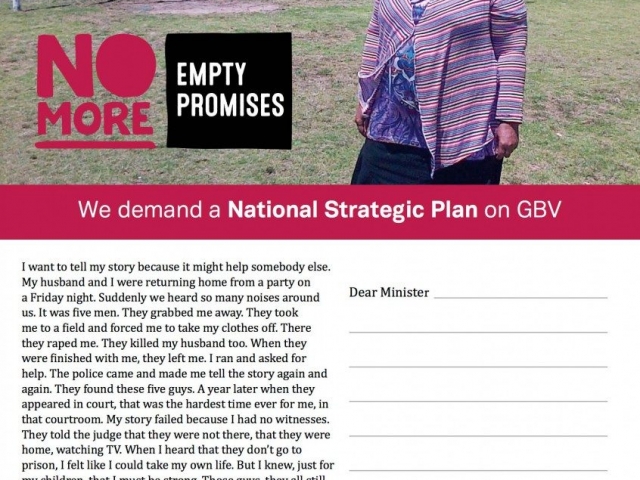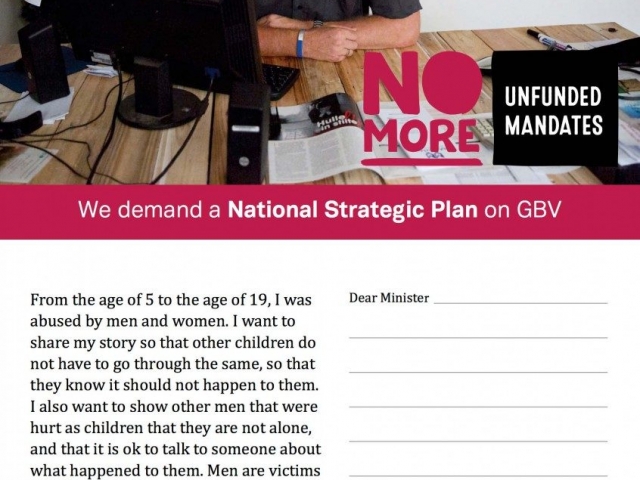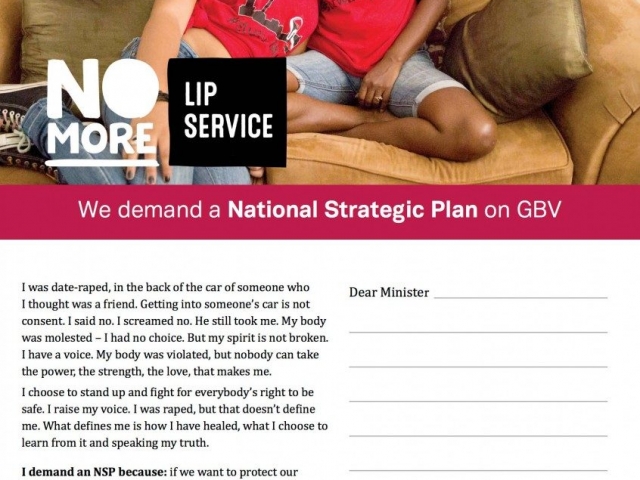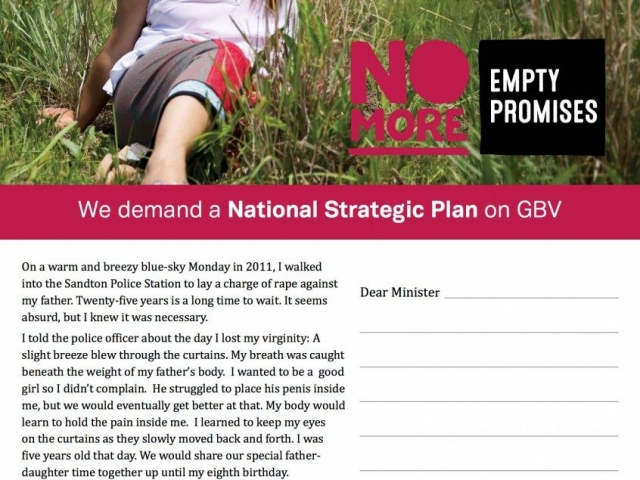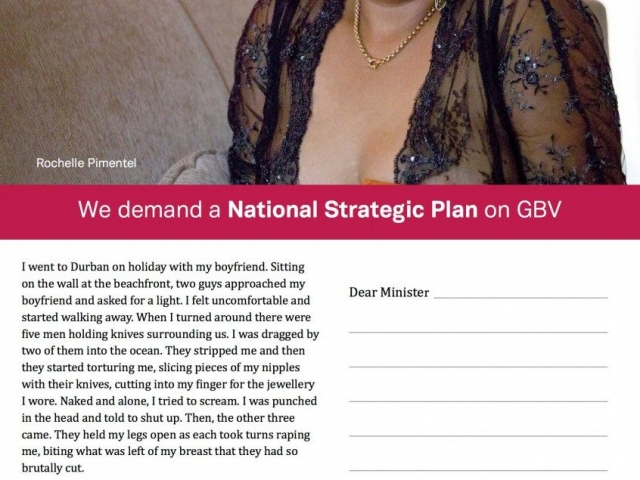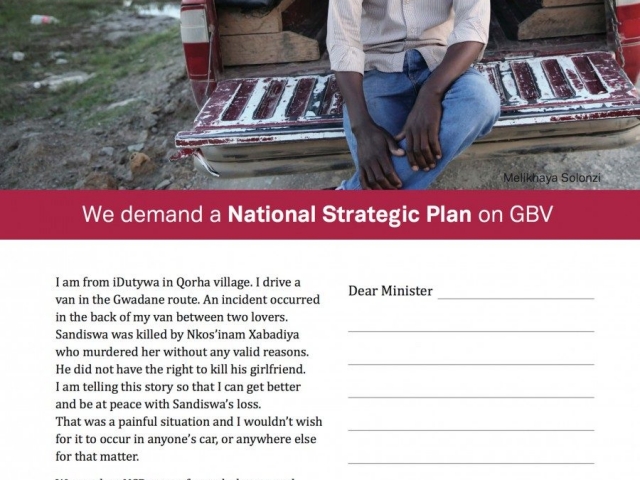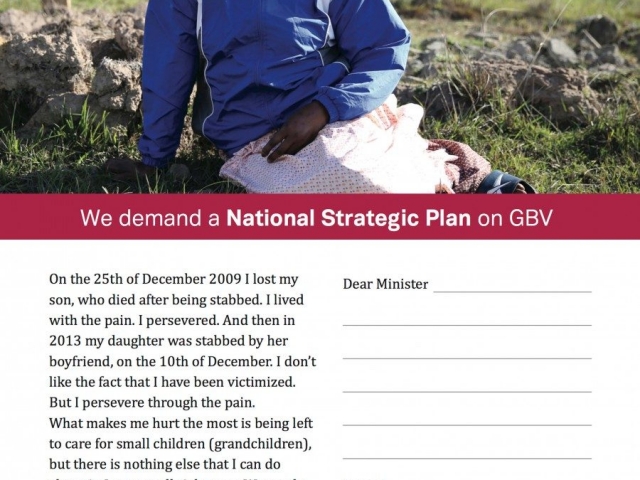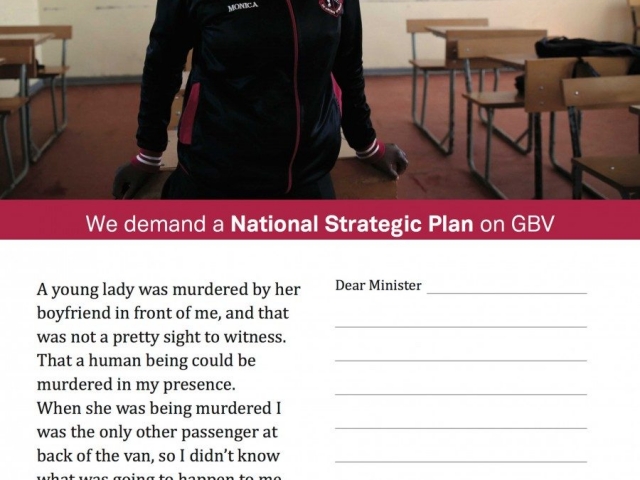In the matter between Sonke Gender Justice and the Government of the Republic of South Africa concerning the Pollsmoor Remand Detention Facility.
Publication Type: Materials
-
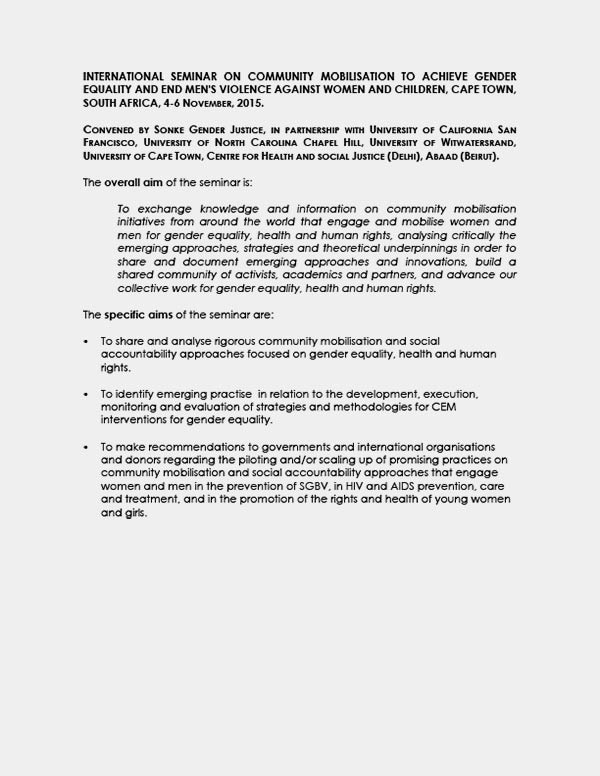
International seminar on community mobilisation to achieve gender equality and end men’s violence against women and children
The overall aim of the seminar is:
To exchange knowledge and information on community mobilisation initiatives from around the world that engage and mobilise women and men for gender equality, health and human rights, analysing critically the emerging approaches, strategies and theoretical underpinnings in order to share and document emerging approaches and innovations, build a shared community of activists, academics and partners, and advance our collective work for gender equality, health and human rights.
-
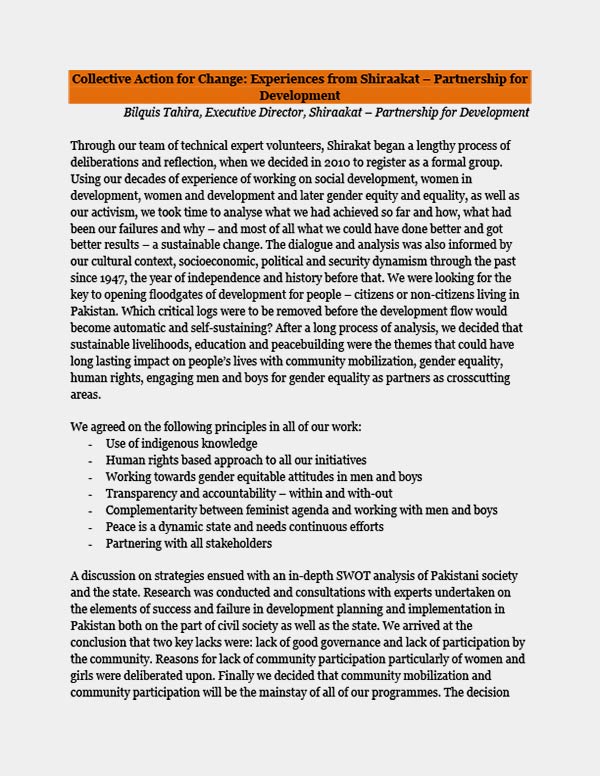
Collective Action for Change: Experiences from Shiraakat
Through our team of technical expert volunteers, Shirakat began a lengthy process of deliberations and reflection, when we decided in 2010 to register as a formal group. Using our decades of experience of working on social development, women in development, women and development and later gender equity and equality, as well as our activism, we took time to analyse what we had achieved so far and how, what had been our failures and why – and most of all what we could have done better and got better results – a sustainable change. The dialogue and analysis was also informed by our cultural context, socioeconomic, political and security dynamism through the past since 1947, the year of independence and history before that. We were looking for the key to opening floodgates of development for people – citizens or non-citizens living in Pakistan. Which critical logs were to be removed before the development flow would become automatic and self-sustaining? After a long process of analysis, we decided that sustainable livelihoods, education and peacebuilding were the themes that could have long lasting impact on people’s lives with community mobilization, gender equality, human rights, engaging men and boys for gender equality as partners as crosscutting areas.
We agreed on the following principles in all of our work:
- Use of indigenous knowledge
- Human rights based approach to all our initiatives
- Working towards gender equitable attitudes in men and boys
- Transparency and accountability – within and with-out
- Complementarity between feminist agenda and working with men and boys
- Peace is a dynamic state and needs continuous efforts
- Partnering with all stakeholders
-
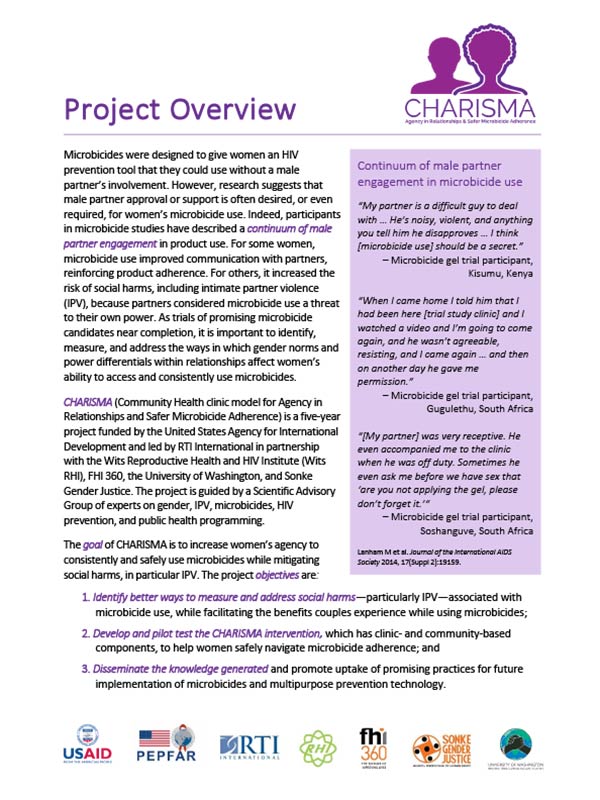
CHARISMA Project Overview
Microbicides were designed to give women an HIV prevention tool that they could use without a male partner’s involvement. However, research suggests that male partner approval or support is often desired, or even required, for women’s microbicide use. Indeed, participants in microbicide studies have described a continuum of male partner engagement in product use. For some women, microbicide use improved communication with partners, reinforcing product adherence. For others, it increased the risk of social harms, including intimate partner violence (IPV), because partners considered microbicide use a threat to their own power. As trials of promising microbicide candidates near completion, it is important to identify, measure, and address the ways in which gender norms and power differentials within relationships affect women’s ability to access and consistently use microbicides.
-
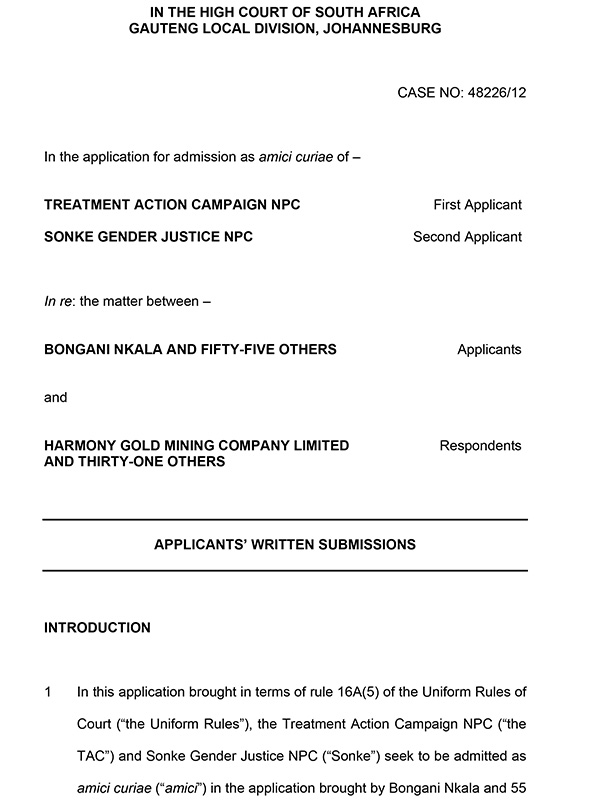
Amici Curiae Applicants’ Heads of Argument
The heads of argument submitted to court in the Sonke and TAC application to be accepted as amici curiae.
-
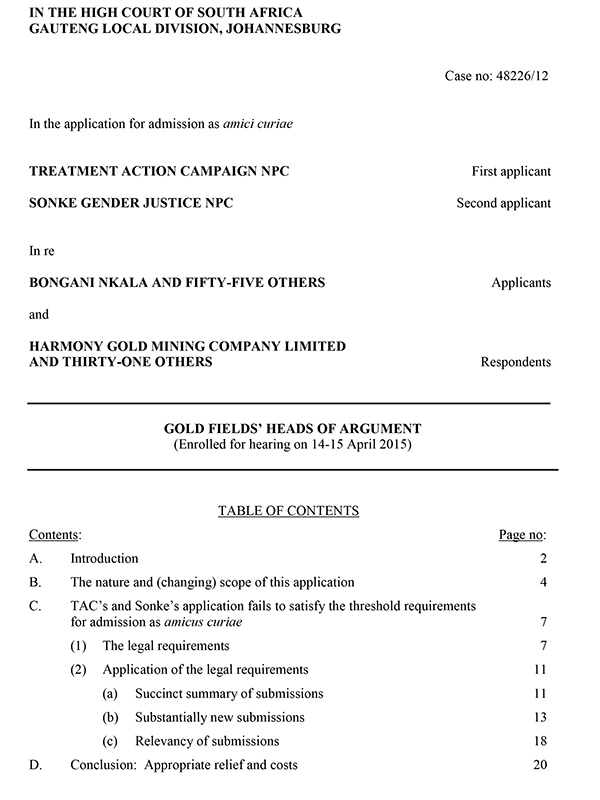
Gold Fields’ Heads of Argument
Heads of argument presented by Gold Fields in the amicus curiae application by TAC and Sonke Gender Justice.
-
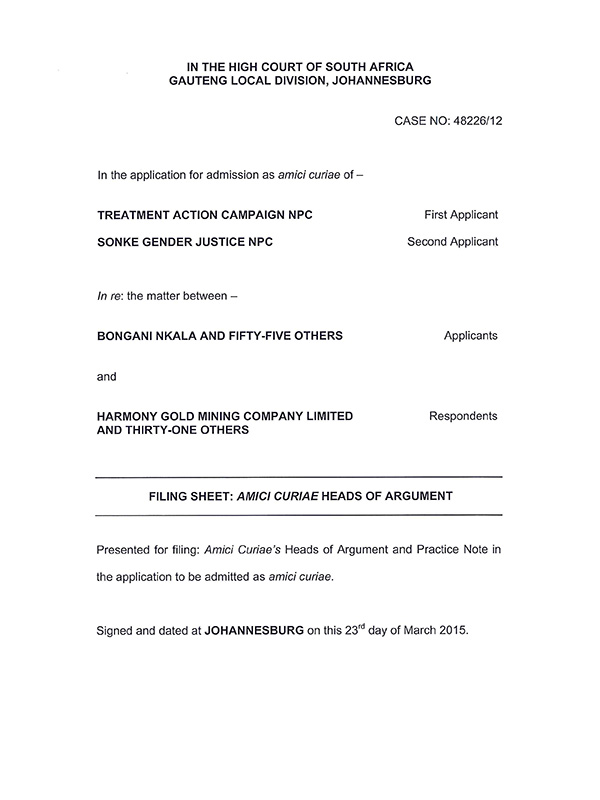
Filing Sheet: Amici Curiae Heads of Argument
Sonke and TAC filing sheet in their application for admission as amici curiae (friends of the court) in the matter between the 56 miners and 32 gold mining companies.
-
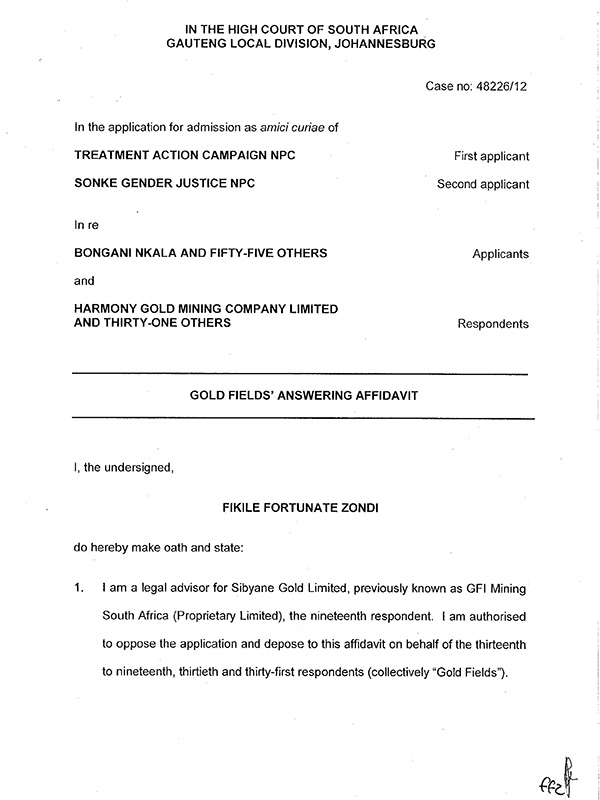
Gold Fields’ Answering Affidavit
The answering affidavit prepared by Gold Fields, a respondent in the amici curiae application by Sonke and TAC.
-
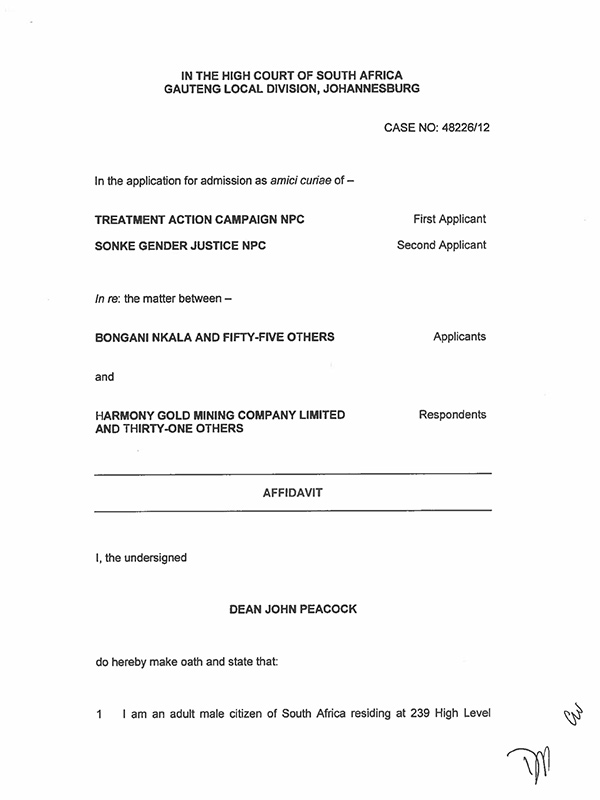
Dean Peacock Affidavit
Peacock’s affidavit, on behalf of Sonke, shows the implications of illness and unemployment on the children and families of sick mineworkers and the impact of silicosis on women and girls in particular, who often bear the brunt of having to care for the ill former mineworkers.
-

Postcards Calling for a National Strategic Plan to End Gender-Based Violence
The GBV NSP Campaign Partners (a coalition of more than 50 South African cilvil society organisations, including Sonke), have been calling on government to fund and implement a comprehensive National Strategic Plan (NSP) to end gender-based violence (GBV), which must be multisectoral and include widespread prevention strategies.
As part of our campaign to get government to commit to the GBV NSP, we launched a series of postcards, each with the story and photograph of a person/persons who have been affected by GBV.
On the back of the postcards, South Africans can write to government about why they think we must invest in a national plan to end gender-based violence.
The first batch of postcards were handed over to the Ministry of Women as part of the national 16 Days of Activism against gender-based violence campaign in December.
[Photographs by Demelza Bush]
-
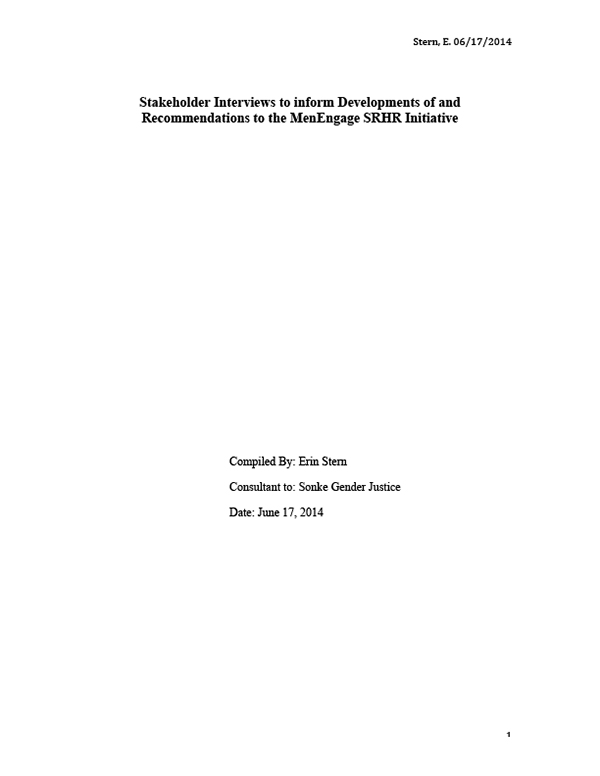
Stakeholder Interviews to inform Developments of and Recommendations to the MenEngage SRHR Initiative
The following report documents the feedback generated from 28 interviewed stakeholders including funders, researchers, policy specialists, directors, program officers, communication leads, technical advisors, evaluators, and consultants from a variety of regions to inform developments of and recommendations to the MenEngage SRHR Initiative. The stakeholders interviewed had a wealth of experience in SRHR, including in women’s SRHR and access. Expertise in the latter area was critical to privilege a feminist perspective of the initiative and to lay a foundation for meaningful partnership with women’s SRHR efforts. Stakeholders were purposefully recruited through the networks of Sonke, Promundo and MenEngage. The stakeholders interviewed represent those who were available and willing to be interviewed.
Apart from two interviews conducted face-to-face in Cape Town, all interviews were conducted over Skype and telephonically. All stakeholders were sent a copy of the initiative concept note prior to being interviewed. The interviews assessed stakeholders’ opinions and thoughts about the themes, objectives and strategies of the initiative. Interviewees were also asked about the current status of engaging men in SRHR, if the initiative could support their work, the potential impact of the initiative, their awareness of other efforts engaging men in SRHR, strategic opportunities, and any challenges they foresaw the initiative facing. All interviews were transcribed verbatim and analyzed using a thematic approach.
Overall, stakeholders strongly supported and valued the necessity of the initiative. There was much agreement that SRH services, policies and programs engaging men were limited and/or not inclusive of men wanting to be involved. There was general consensus of the need to integrate the initiative with efforts supporting and advocating for women’s SRHR, to promote gender equality by addressing harmful social and cultural norms, and engage with aspects of sexuality and masculinity. Using a human rights and positive sexuality framework, and foregrounding the initiative’s aim to improve men’s SRHR, would be useful to motivate men’s involvement.
-
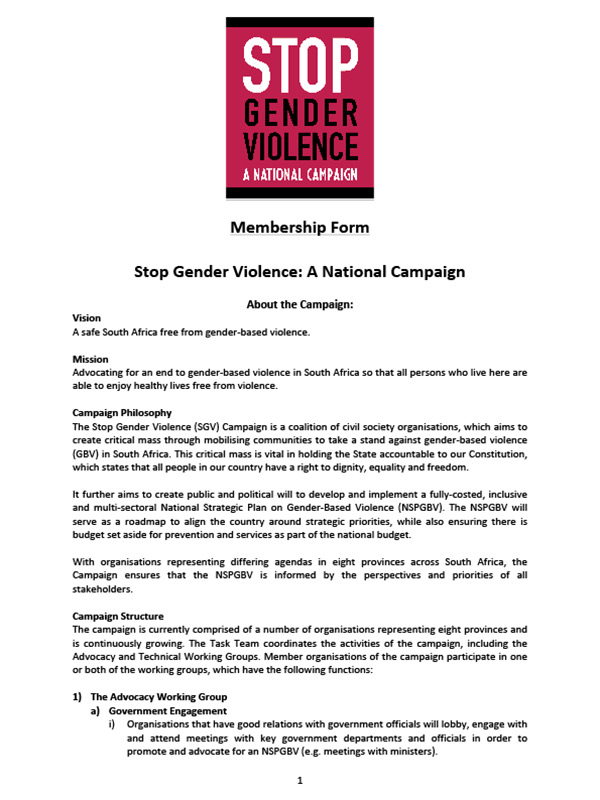
SGV Campaign Membership Form
About the Campaign:
Vision
A safe South Africa free from gender-based violence.
Mission
Advocating for an end to gender-based violence in South Africa so that all persons who live here are able to enjoy healthy lives free from violence.
Campaign Philosophy
The Stop Gender Violence (SGV) Campaign is a coalition of civil society organisations, which aims to create critical mass through mobilising communities to take a stand against gender-based violence (GBV) in South Africa. This critical mass is vital in holding the State accountable to our Constitution, which states that all people in our country have a right to dignity, equality and freedom.
It further aims to create public and political will to develop and implement a fully-costed, inclusive and multi-sectoral National Strategic Plan on Gender-Based Violence (NSPGBV). The NSPGBV will serve as a roadmap to align the country around strategic priorities, while also ensuring there is budget set aside for prevention and services as part of the national budget.
With organisations representing differing agendas in eight provinces across South Africa, the Campaign ensures that the NSPGBV is informed by the perspectives and priorities of all stakeholders.
-
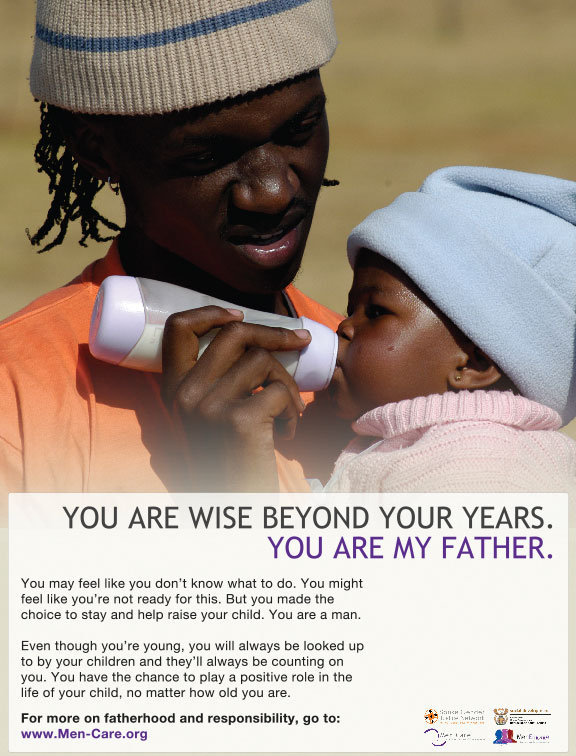
MenCare ‘You are my Father’ Posters (English)
Sonke’s MenCare posters feature community members from the Matzikama area in the Western Cape as role models of positive, engaged and equitable parenting, and celebrates fatherhood in the predominant Afrikaans language of that community. The Afrikaans posters are available here.
Download the English posters as a package, above, or get the individual posters here:
-
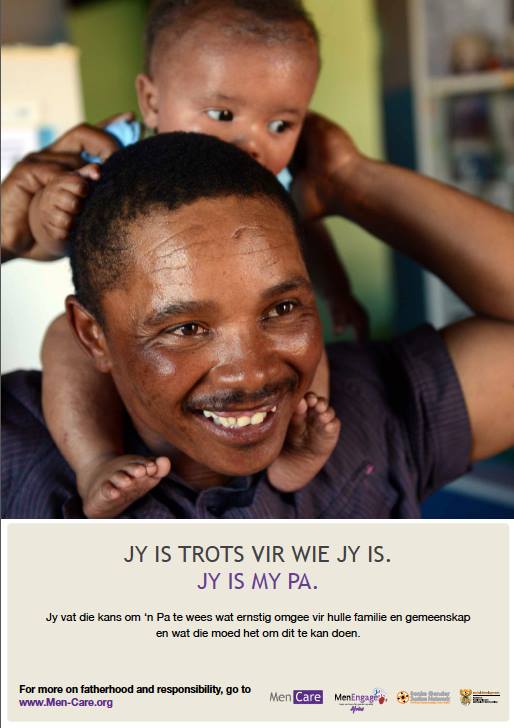
MenCare ‘You are my Father’ Posters (Afrikaans)
Sonke’s MenCare posters feature community members from the Matzikama area in the Western Cape as role models of positive, engaged and equitable parenting, and celebrates fatherhood in the predominant Afrikaans language of that community. The English posters are available here.
Download the Afrikaans posters as a package, above, or get the individual posters here:
-
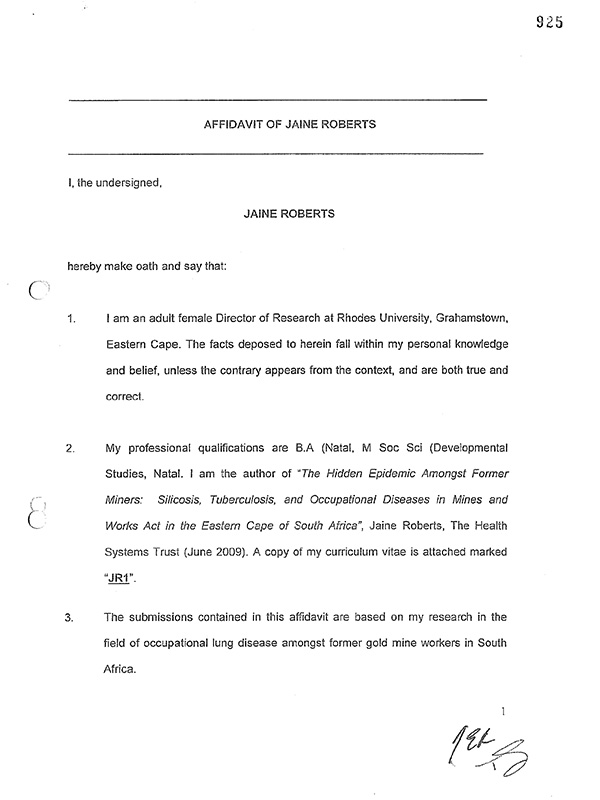
Affidavit of Jaine Roberts
An affidavit by Jaine Roberts, Director of Research at Rhodes University, provides expert insight into research in the field of occupational lung disease amongst former gold miners in South Africa.

